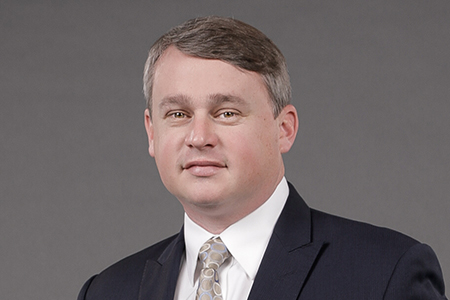Representation Matters. Location Does Too.
By Ben Comer, Chief Editor, Life Science Leader

 The swearing in of Justice Ketanji Brown Jackson — the first Black woman to ever serve on the U.S. Supreme Court — was dramatically overshadowed by the Court’s end-of-term opinions on some of the nation’s most contentious issues: abortion, guns, and the environment. While Justice Jackson’s appointment won’t substantially change the ideological makeup and direction of the court, her achievement and position on the highest judicial tribunal in the country should not be underestimated; referencing a flood of congratulatory notes in a White House ceremony following her confirmation, Justice Jackson singled out notes from children as particularly meaningful. They “speak directly to the hope and promise of America.”
The swearing in of Justice Ketanji Brown Jackson — the first Black woman to ever serve on the U.S. Supreme Court — was dramatically overshadowed by the Court’s end-of-term opinions on some of the nation’s most contentious issues: abortion, guns, and the environment. While Justice Jackson’s appointment won’t substantially change the ideological makeup and direction of the court, her achievement and position on the highest judicial tribunal in the country should not be underestimated; referencing a flood of congratulatory notes in a White House ceremony following her confirmation, Justice Jackson singled out notes from children as particularly meaningful. They “speak directly to the hope and promise of America.”
Representation at the top of any profession, whether jurisprudence or biotechnology, works as an accelerator for younger generations to follow. It’s a fact that helped Yvonne Greenstreet (the subject of this month’s cover story) decide to take on the role of CEO at Alnylam Pharmaceuticals, a pioneering RNAi therapeutics developer with a market cap of over $17 billion. The company’s most recent five-year strategy, which runs through 2025 and which Greenstreet helped develop with outgoing CEO John Maraganore, suggests that Greenstreet and Alnylam will largely stay the course in the shorter term.
Alnylam is based in Cambridge, MA, the top city for NIH grants and funding, and an exceedingly competitive location for sourcing biopharmaceutical talent. At BIO’s annual convention, held in San Diego in June, more than one locally based biotech executive told me that part of San Diego’s appeal comes from the availability of talent compared with other biotech-heavy cities, a critical factor for smaller companies working to become larger companies.
The last in-person interviews that I conducted in Florida, before moving to my new location in Pittsburgh, PA, were with KemPharm’s CEO Travis Mickle and CFO LaDuane Clifton. Based in Celebration, FL, KemPharm has developed a unique capability — getting drugs approved following an FDA Complete Response Letter — that it hopes to convert into a first-in-class new drug approval next year. That story also appears in this month’s issue.
Speaking of Pittsburgh, a city that cares deeply about sports and science, I had the pleasure of joining employees from several of the area’s life sciences organizations for a Pittsburgh Pirates baseball game one evening at the end of June. Sponsored by Life Sciences Pennsylvania, a statewide trade association, the gathering included Jessica Gibson, president and CEO of Ariel, a precision medicine company built on a proprietary genetic segmentation platform called ADVANCE.
Gibson, a co-founder of Ariel along with University of Pittsburgh professor and director of the UPMC Precision Medicine Service David Whitcomb, told me that after years of living in California, when it came time to start a company, she wanted to be in Pittsburgh, her hometown. It helped that Carnegie Mellon University, less than two miles away from Ariel’s Shadyside headquarters, provided world-class talent from its machine learning program to build the software behind Ariel’s ADVANCE platform.
It being Pittsburgh, the conversation eventually turned to Thomas Starzl, the “father of modern transplantation” and a scientist whose contributions as a mentor to the next generation of surgeons, drug developers, and scientists across the life sciences sector would make a fascinating story by itself. For readers looking to squeeze in a final book before the end of summer, Starzl’s The Puzzle People: Memoirs Of A Transplant Surgeon would be an excellent choice.
